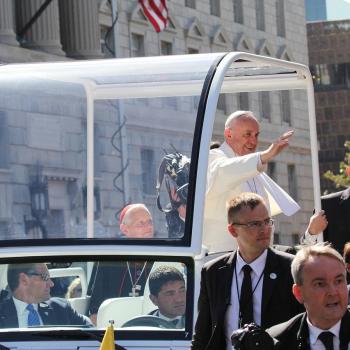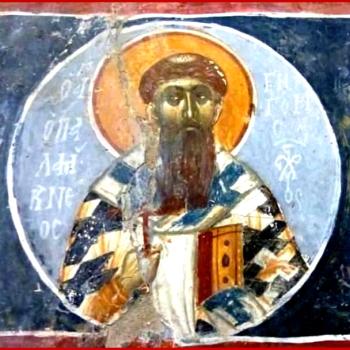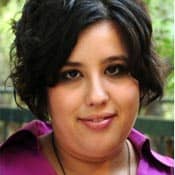Author's note: This column is inspired by David Silber's essay "The Birth of Samuel and the Birth of Kingship," in The Yeshivat Chovevei Torah Rabbinical School Tanakh Companion: The Book of Samuel.
During the first day of Rosh Hashanah (Jewish New Year) service, we read from the first chapter and a half of I Samuel. This book tells the story of Samuel, a prophet and a kingmaker who anoints both Saul, the first King of Israel, and David, his eventual successor. In the Rosh Hashanah reading, Samuel starts out as a mere dream of Hannah, his barren mother. In the Jewish cannon, her prayer for a child has become the avatar for all prayer.
The very structure of the nine blessing of the silent Mussaf prayer on Rosh Hashanah is said to be based on Hannah's prayer on the occasion of surrendering Samuel to the Tent of Meeting. Hannah's visionary prayers set her apart from the chain of barren women in the Hebrew Bible and from her own society. In Hannah, the radical potential of the barren woman is realized, because it is precisely her barrenness that grants Hannah vision—without a son she has no social standing and thus no investment in society's norm.
Three of the four matriarchs were barren; however, they did not pray. Rachel blames Jacob for her infertility and Rebecca asks Isaac to pray for her. Sarah, the first matriarch, does not pray either, but Abraham's prayer for a child appears in the Torah text. His prayer stands in stark contrast to Hannah's request. Abraham asks for an heir to his estate: "See, to me You have given no offspring; and see, my steward inherits from me..." (Gen 15:1).
Abraham's concern for an heir marks him as belonging to the powerful of the earth. His concern is a rich person problem. He is worried about evaporation of his wealth, influence and legacy.
Conversely, Hannah is socially marginal. With no estate to speak of, she is concerned with something very different. This is her prayer:
Lord of Hosts, if you really will look on your servant's woe and remember me, and forget not your servant and give your servant male seed, I will give him to the Lord all days of his life, no razor shall touch his head. (I Samuel 1:10-11)
Hannah wants a son, who she will then give to God; she prays for a son who will change the world. She desires revolution more than motherhood. During her prayer, she is interrupted by the high priest, Eli, who accuses her of being drunk, according to commentaries, because she is praying silently in the temple (I Samuel 1:12-14). Everyone else, including Hannah's husband, comes to the Tent of Meeting, in Shiloh, to partake in the hopelessly corrupt public ritual of sacrifices. The corruption in Shiloh goes unseen by all except the barren woman who prays for a son who will change everything (I Samuel 2: 12-14).
Eli is blind to Shiloh's corruption, even though his sons are its source. Eli's sons steal from the animal sacrifices and rape the women who seek refuge at the Tent of Meeting. Their enormous abuse of power is entrenched by the good but hapless people who uphold the norms and continue to bring their sacrifices:
And this man [Elkanah, Hannah's husband ] would go up from his town year after year to worship and to sacrifice to the Lord of hosts in Shiloh, and there the two sons of Eli ..were priests to the Lord. (I Samuel 1:3)
Elkanah is one such good but hapless person. He worships God as he is told by the society around him. He makes the required pilgrimages, pays his respects, and brings his sacrifices. He is a model citizen of the corrupt empire. In choosing to pray as she does, Hannah stands in opposition to the corruption of Shiloh, the silence of the matriarchs who sought status and power through their husbands, and Abraham's prayer for a male to inherit. Hannah has nothing to inherit but a vision. This is the legacy that Samuel will receive.
Upon surrendering her son to the Tent of Meeting, Hannah prays for the displacement of the powerful.
...Do not go on talking high and mighty
Arrogance slips from your mouth
For a God all-knowing is the Lord,
And His is the measure of actions....
He raises the poor from the dustl,
From dung heaps the wretched He lifts
To sit among princes
For the Lords are the pillars of the earth
Upon them he founded the world...
Her prayer is a plea for the downfall of the "high and mighty" and for the raising up of the "poor" and the "wretched." This is not a song of motherhood—this is a call for revolution, a call that will be reiterated by her son, who says to King Saul:
Has the Lord as great delight in burnt-offering and sacrifices as in listening to the voice of the Lord? Behold, to obey is better than to sacrifice, and to listen better than the fat of rams. (I Samuel 15:22-23)
Ritual cannot replace soul, and social norms are not synonymous with meaningful prayer. The communal act of reading Hannah's prayers as part of the socially sanctioned liturgy invests our current convention of prayer with a hint of anarchy. Hannah did not pray as she was told and she did not pray for what she was told. To pray like Hannah is to shed our tenuous connections to power, to become barren, to revolt—if even just for a day.
9/27/2011 4:00:00 AM





